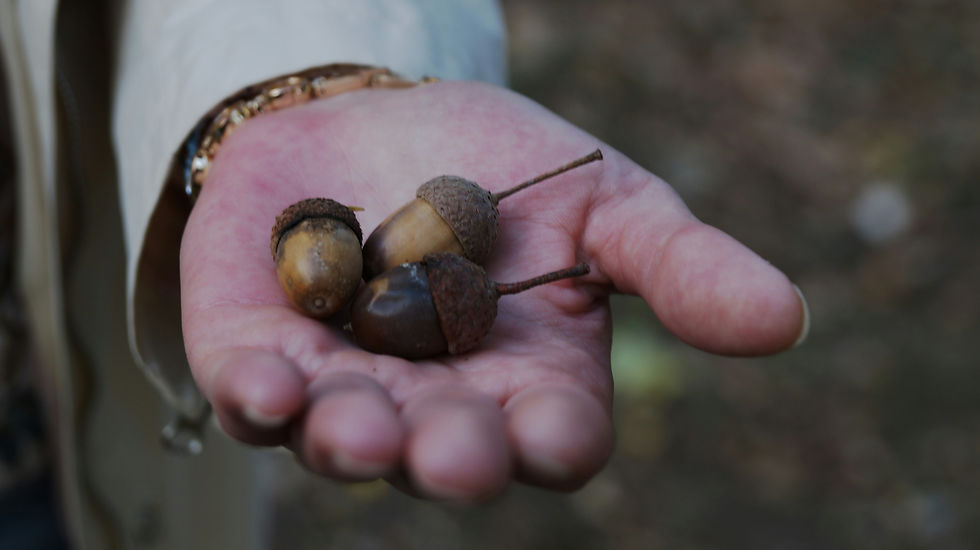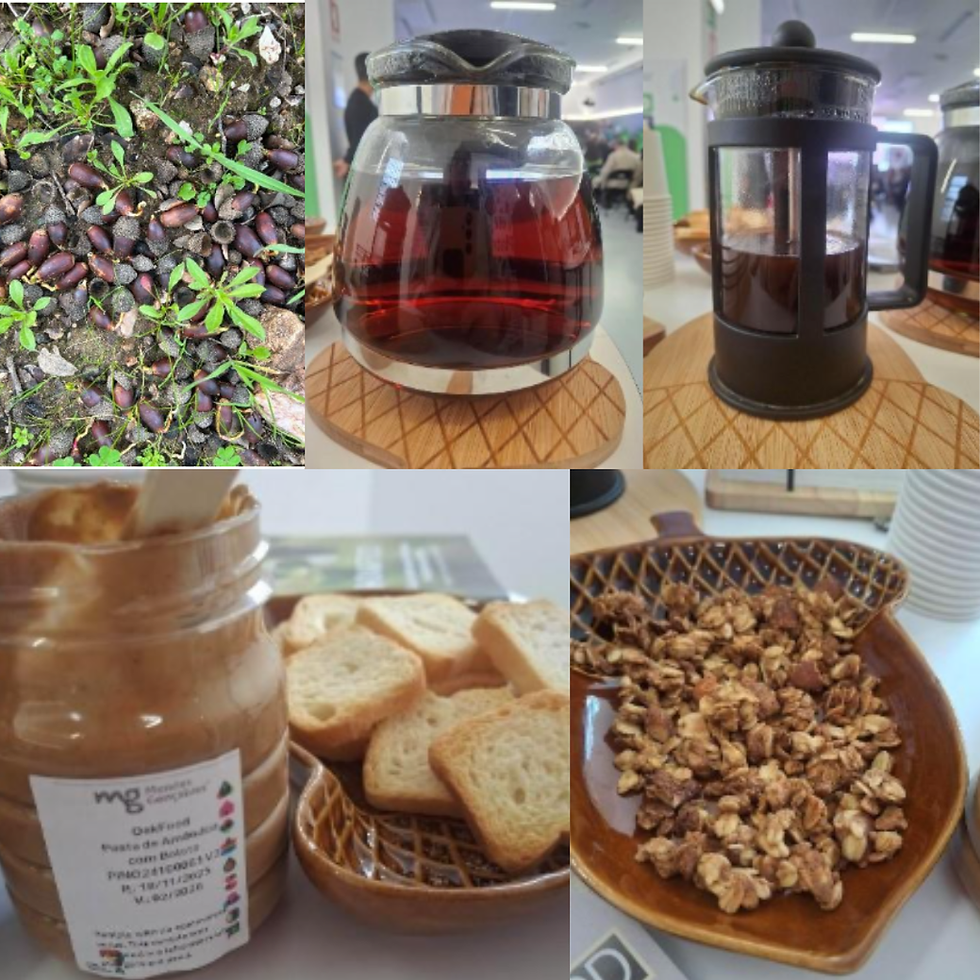Diversity of species and flavours: the different acorns of Portugal
- OakFood

- Sep 25, 2025
- 2 min read
In Portugal, there are around eleven native species of the genus Quercus that produce acorns (Vila-Viçosa, C. et al 2023). This diversity is reflected not only in the morphological variability of the trees, but also in the diversity of flavours and potential uses of their acorns. Only the acorn of Quercus rotundifolia (holm oak) is included by the European Food Safety Authority (EFSA) in the category of food authorised for human consumption. The acorns of Quercus robur (English oak), Quercus coccifera (kermes oak) and Quercus suber (cork oak) are classified only as food supplements by the same entity.

In recent decades, there has been a resurgence of interest in acorns in Portuguese cuisine, driven by the appreciation of their nutritional profile.
This fruit has been considered a ‘superfood’ due to its high oil content and, consequently, its energy value. In addition, acorns have significant concentrations of bioactive compounds, particularly polyphenols, especially tannins, whose antioxidant activity has been scientifically proven.
Acorns have always been recognised for their importance in the rural economy, both in human and animal nutrition. Their use dates back to ancient times, for the production of flour and bread (Batista, 2017).

In human nutrition, they are very diverse, with several products available on the market, such as acorn biscuits, acorn infusion, acorn flour, acorn pâté, acorn bread, acorn burgers, acorn sausage, etc. However, it is important that this endogenous resource be further enhanced through the revitalisation of old recipes and the development of new products.
Bibliography:
Batista T., de Mascarenhas J. M., Mendes P., (2017). Montado’s ecosystem functions and services: the case study of Alentejo Central – Portugal. The Problems of Landscape Ecology, Vol. XLIV, 15-27 pp.
Vila-Viçosa, C.; Capelo, J.; Alves, P.; Almeida, R. & Vázquez, F. M. 2023 New annotated checklist of the Portuguese oaks (Quercus, Fagaceae). Mediterranean Botany. DOI:10.5209/mbot.79286




Comments